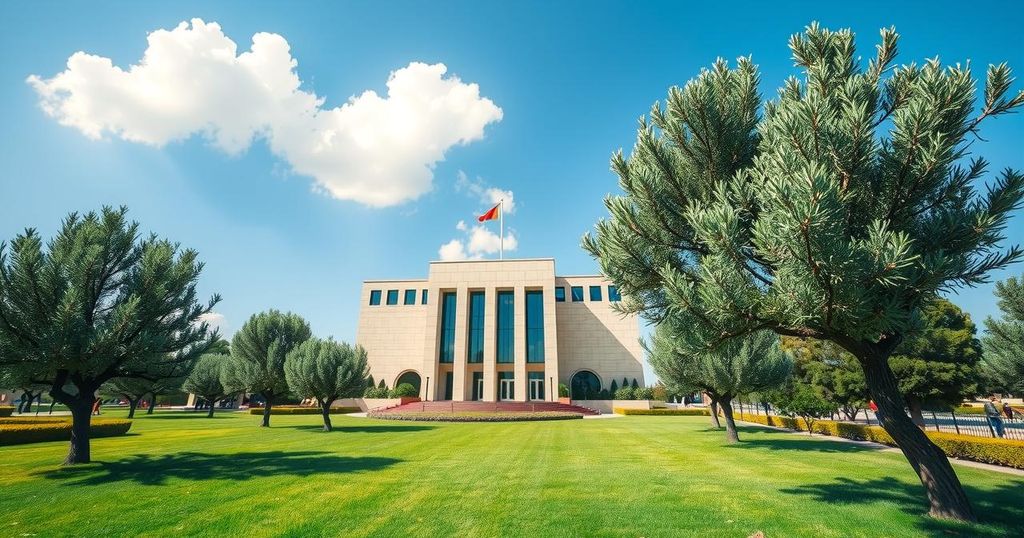Syria’s interim President Ahmed al-Sharaa announced a new transitional government dominated by allies, including one woman, to replace the previous caretaker authorities. The new leadership aims to address sectarian tensions and rebuild the country post-Assad’s ousting. However, there are concerns regarding power concentration and minority protections.
Syria’s interim President Ahmed al-Sharaa announced a new transitional government on March 29, 2025, replacing the caretaker authorities established after the ousting of Bashar al-Assad. This government, primarily composed of Sharaa’s close allies, includes one woman, amid growing international calls for a more inclusive transition. The leadership aims to reunite and reconstruct Syria following the end of civil war that persisted for over 14 years.
Key positions in the new government are held by familiar figures, including Assaad al-Shaibani as Foreign Minister and Murhaf Abu Qasra as Defence Minister. Additionally, Anas Khattab was appointed as Interior Minister and veteran opposition leader Hind Kabawat was named as the Social Affairs and Labour Minister, marking her as the first woman in Sharaa’s cabinet.
Raed al-Saleh, the leader of the White Helmets, took on the role of Minister of Emergency Situations and Disasters. The new Islamist-led authorities have pledged to protect minority communities in the wake of recent sectarian conflicts, particularly following violence between Assad’s Alawite supporters and Sunni militia factions.
Before this announcement, a caretaker government led by Mohammad al-Bashir was appointed in December 2025, aiming to guide the country until a formal cabinet is established. Sharaa, who was appointed interim president in January, has also enacted a constitutional declaration for a five-year transitional period, although some experts express concerns about the concentration of power and the limited protections for minorities.
The transition in Syria marks a significant shift in governance following the fall of Bashar al-Assad. The newly formed government, led by allies of interim President Ahmed al-Sharaa, aims to restore order and inclusivity while also addressing concerns regarding minority rights. However, the concentration of power within Sharaa’s administration raises questions about the long-term implications for governance in Syria and the protection of its diverse populations.
Original Source: www.thehindu.com






